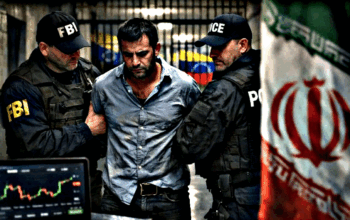 The European nation of Ukraine has become the latest country to pass favorable legislation around cryptocurrencies. According to a report by local media publication Kyiv Post, a draft bill to legalize the use of cryptocurrencies in the country passed a second reading in Parliament on Sept 8. The bill will now go into force if President Volodymyr Zelensky puts his signature on it. Before now, Ukrainians could freely buy and sell cryptocurrencies on local exchanges. However, investors did not have access to petition a local court if things went wrong, for instance, if they lost their assets while using an exchange.
The European nation of Ukraine has become the latest country to pass favorable legislation around cryptocurrencies. According to a report by local media publication Kyiv Post, a draft bill to legalize the use of cryptocurrencies in the country passed a second reading in Parliament on Sept 8. The bill will now go into force if President Volodymyr Zelensky puts his signature on it. Before now, Ukrainians could freely buy and sell cryptocurrencies on local exchanges. However, investors did not have access to petition a local court if things went wrong, for instance, if they lost their assets while using an exchange.
The new law would make such provisions available and is expected to lay the groundwork for the country to further regulate the emerging industry. It assigns Ukraine’s Ministry of Digital Transformation, the National Bank of Ukraine, and the National Securities Commission as regulators for the cryptocurrency industry.
Under the proposed law, cryptocurrencies are classified as “intangible assets expressed in the form of electronic data.” The law also defines what a “virtual currency wallet” and “private key” are — terms that have never been used in Ukraine’s legislation until now.
Although the new law recognizes that citizens can freely trade cryptocurrencies on exchanges registered in the country, it notes that the local currency, the hryvnia, remains the only official currency and legal tender.
Crypto companies in Ukraine will have to pay at least $3100 for registration, provide proof that they have a good reputation, and also pay taxes. The government plans to create a new regulatory body that will issue licenses to crypto businesses, according to the report.
The belief is that by regulating the cryptocurrency space, even more Ukrainians would be more confident about investing in the industry. Ukraine’s Minister of Digital Transformation, Mykhailo Fedorov expressed that thought, reportedly saying:
If cryptocurrency becomes legal and therefore safer, more Ukrainians will invest in it. Only a few countries in the world have legalized crypto assets — Germany, Luxembourg, Singapore. Ukraine will be one of them.
Earlier this week, El Salvador became the first country in the world to officially recognize Bitcoin as legal tender. Ukraine’s move may not have the same degree of effect as that of El Salvador, but it does provide proof that countries will likely choose to regulate instead of outrightly banning cryptocurrencies.



